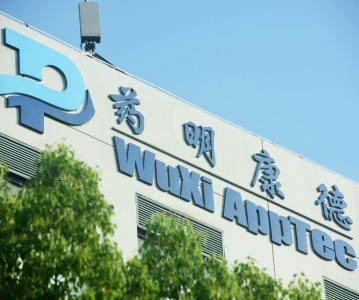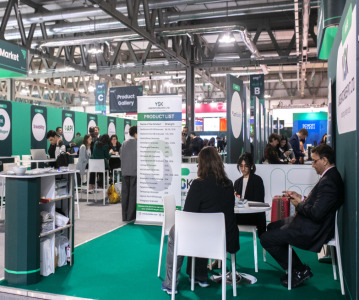Amgen Announces Positive Top-Line Results from Phase III Study Evaluating the Efficacy and Safety of Biosimilar Candidate ABP 501

Amgen has announced a Phase III study evaluating the efficacy and safety of biosimilar candidate ABP 501 compared with Humira (adalimumab) in patients with moderate-to-severe rheumatoid arthritis met its primary and key secondary endpoints. The primary endpoint compared the ACR20 measurements (20% or greater improvement in ACR assessment) at week 24. The ACR20 was within the prespecified margin for ABP 501 compared to adalimumab, showing clinical equivalence. Safety and immunogenicity of ABP 501 were comparable to adalimumab. Key secondary endpoints included ACR50, ACR70 and DAS 28-CRP.
ABP 501 is being developed as a biosimilar candidate to adalimumab, an anti-TNF-a monoclonal antibody, which is approved in many countries for the treatment of inflammatory diseases, including rheumatoid arthritis, plaque psoriasis, polyarticular juvenile idiopathic arthritis, psoriatic arthritis, ankylosing spondylitis, Crohn's disease and ulcerative colitis.
"The positive results from Amgen's biosimilar Phase III rheumatoid arthritis study showed clinical equivalence in efficacy, and comparable safety and immunogenicity, to adalimumab. Amgen's success on both our ABP 501 psoriasis and rheumatoid arthritis studies underscores our expertise in the research and development of high-quality biologic therapies," said Sean E. Harper, executive vice president of R&D at Amgen. "Inflammation remains a core therapeutic area for Amgen, and we are committed to leveraging our long-term heritage in the space to deliver a portfolio of biosimilar and novel compounds that benefit patients worldwide."
Amgen has nine biosimilar molecules in development and expects to launch five of these biosimilars between 2017 and 2019.
Related News
-
News WuXi to sell CGT manufacturing unit to US-based Altaris LLC
At the tail end of 2024, Chinese-based CDMO WuXi AppTec announced the signing of their deal with private equity firm Altaris LLC, confirming the sale of WuXi Advanced Therapies, the cell and gene therapy manufacturing arm of WuXi AppTec. -
News Women in Pharma: Our hopes for 2025 and beyond
Our last instalment for 2024 of the Women in Pharma series brings you messages direct from the Informa Markets CPHI team as they discuss the advice and insights they have carried throughout their roles working at CPHI, and what they hope to see for the... -
News CPHI Milan Wrap-Up Report: Conference Highlights
Discover the emerging and trending topics of the pharmaceutical industry with our CPHI Milan Conference Highlights, with exclusive insight from pharmaceutical leaders and experts! -
News BIOSECURE Act not included in key defense spending bill for 2025
On December 7, 2024, the Biden administration revealed the 2025 National Defense Authorization Act, an annual defense bill specifying the budget and expenditures of the US Department of Defense. The controversial BIOSECURE Act was notably missing from ... -
News Lessons from CPHI Milan 2024: Sunny Intervals for Pharma Manufacturing?
As the 2024 CPHI conference wrapped up in Milan, we caught up with L.E.K. Consulting – a global strategy consulting firm with deep expertise in pharma manufacturing – to discuss evolving market perspectives and business outlook. -
News Trump 2.0: What does the US election result mean for the healthcare industry?
After Trump won the Presidential election in the US in early November, we take a look at some of the implications a new Trump administration could have on the health and pharmaceutical industry, and on US patients. -
News Women in Pharma: Reflections from Behind the Scenes
In this instalment of our monthly series, the team that brings you the Women in Pharma series each month sits down for a heart-to-heart on what the series means to them, and how they hope to continue their work in the future. -
News Scaling the Industry: CPHI Scale-Up Market interview with YSK Laboratories
For the first time, CPHI Milan hosted the CPHI Start-Up Market, expanding support for emerging and small-sized enterprises in their transition to the next level of growth. In this interview, we spoke with Yuvansh Khokhani, Managing Director of YSK Labo...
Position your company at the heart of the global Pharma industry with a CPHI Online membership
-
Your products and solutions visible to thousands of visitors within the largest Pharma marketplace
-
Generate high-quality, engaged leads for your business, all year round
-
Promote your business as the industry’s thought-leader by hosting your reports, brochures and videos within your profile
-
Your company’s profile boosted at all participating CPHI events
-
An easy-to-use platform with a detailed dashboard showing your leads and performance

.png)





